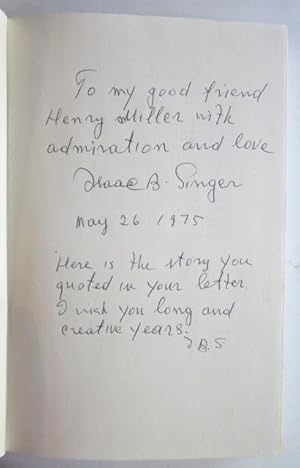


Isaac Singer's skill in using the language was a matter of pride with him, so much so, the story goes, that one day in the '30s, when he was a new, low-ranking contributor to the Jewish Daily Forward, he flew into a rage when an editor tried to give him advice on writing. Singer, Chaim Grade and Sholem Asch, who carried on the tradition of Mendele Mokher Sforim and other great Yiddish novelists of the 1800s. Singer was one of several 20th-century Yiddish writers, including his older brother, I. That being the case, he said, the world had much to learn from the Jews of his childhood world, from "their way of thinking, their way of bringing up children, their finding happiness where others see nothing but misery and humiliation."Ĭentral to that way of life, he said, was Yiddish with its "quiet humor and gratitude for every day of life, every crumb of success, each encounter of love." And in a figurative way, he told his audience, "Yiddish is the wise and humble language of us all, the idiom of the frightened and hopeful humanity." "Nonetheless, it is also true that the serious writer of our time must be deeply concerned about the problems of his generation." These, he said, included the decline of the power of religion and the weakening of the family. "The storyteller of our time, as in any other time, must be an entertainer of the spirit in the full sense of the word, not just a preacher of social and political ideals," he declared, speaking in English.

Singer also expressed his long-held view that one main duty of the writer was to keep the reader interested. In the speech, a deft summary of what he thought about his work, Mr. In awarding him the prize, he said, the Swedish Academy was also honoring "a loshon fun golus, ohn a land, ohn grenitzen, nisht gshtitzt fun kein shum meluchoch" - "a language of exile, without a land, without frontiers, not supported by any government."


 0 kommentar(er)
0 kommentar(er)
